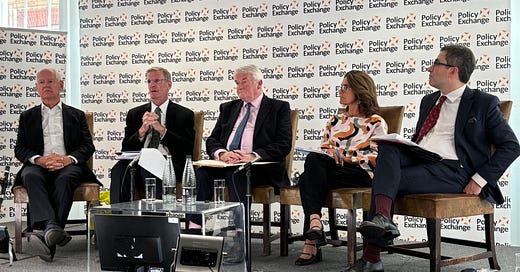Prosecutors at war
Former DPP raises concerns about processes at the International Criminal Court
There were two unexpected developments at the weekend in the long-running attempt to have the Israeli prime minister and his defence minister arrested and brought before the International Criminal Court. They followed concerns raised last week by a former director of public prosecutions about actions taken by the court’s prosecutor, Karim Khan KC.
Iran
Keep reading with a 7-day free trial
Subscribe to A Lawyer Writes to keep reading this post and get 7 days of free access to the full post archives.



